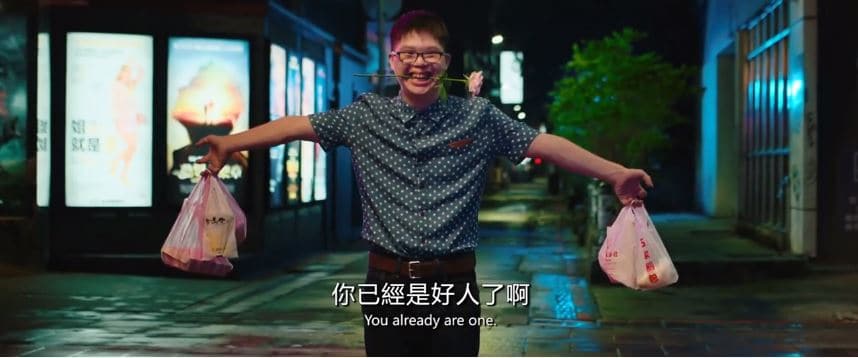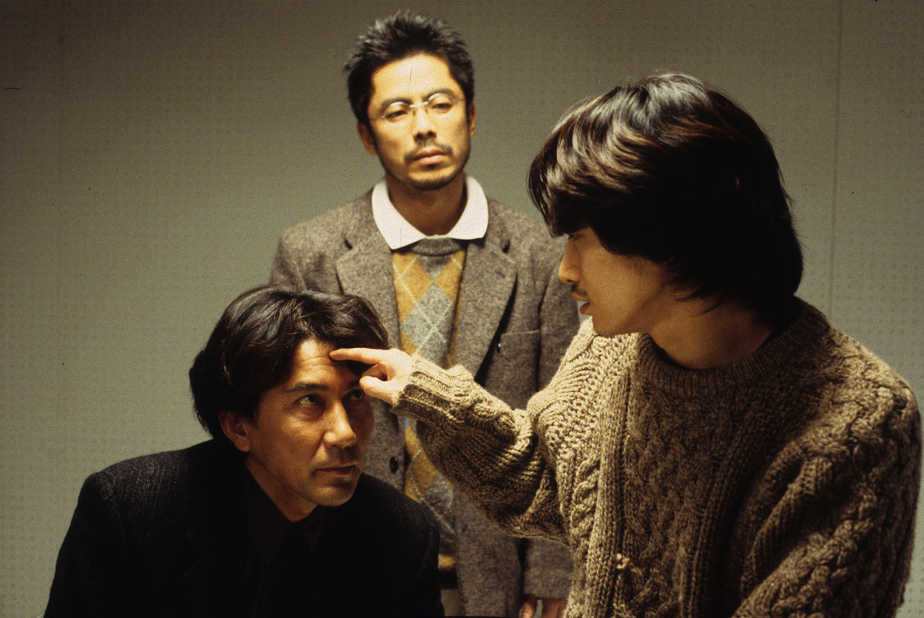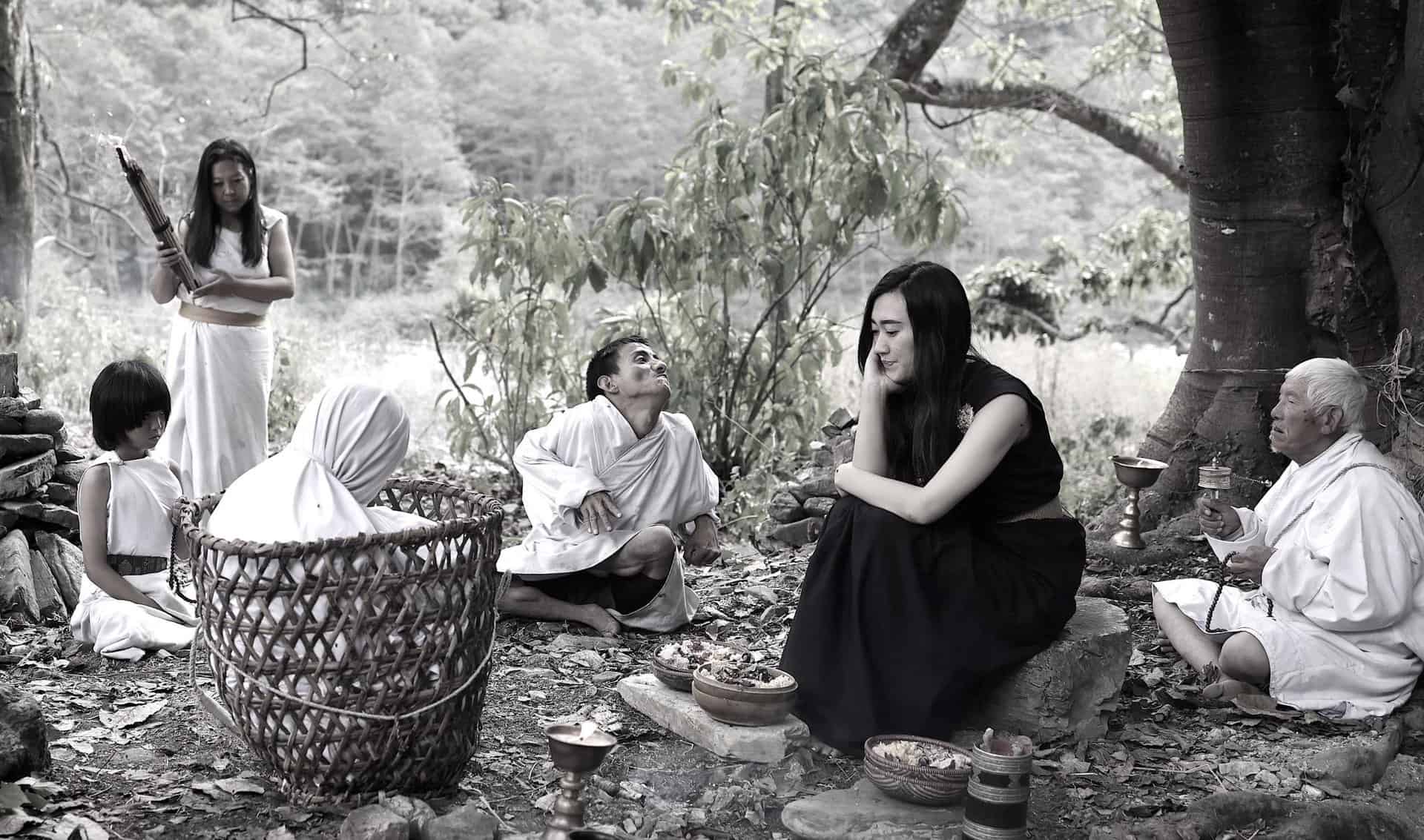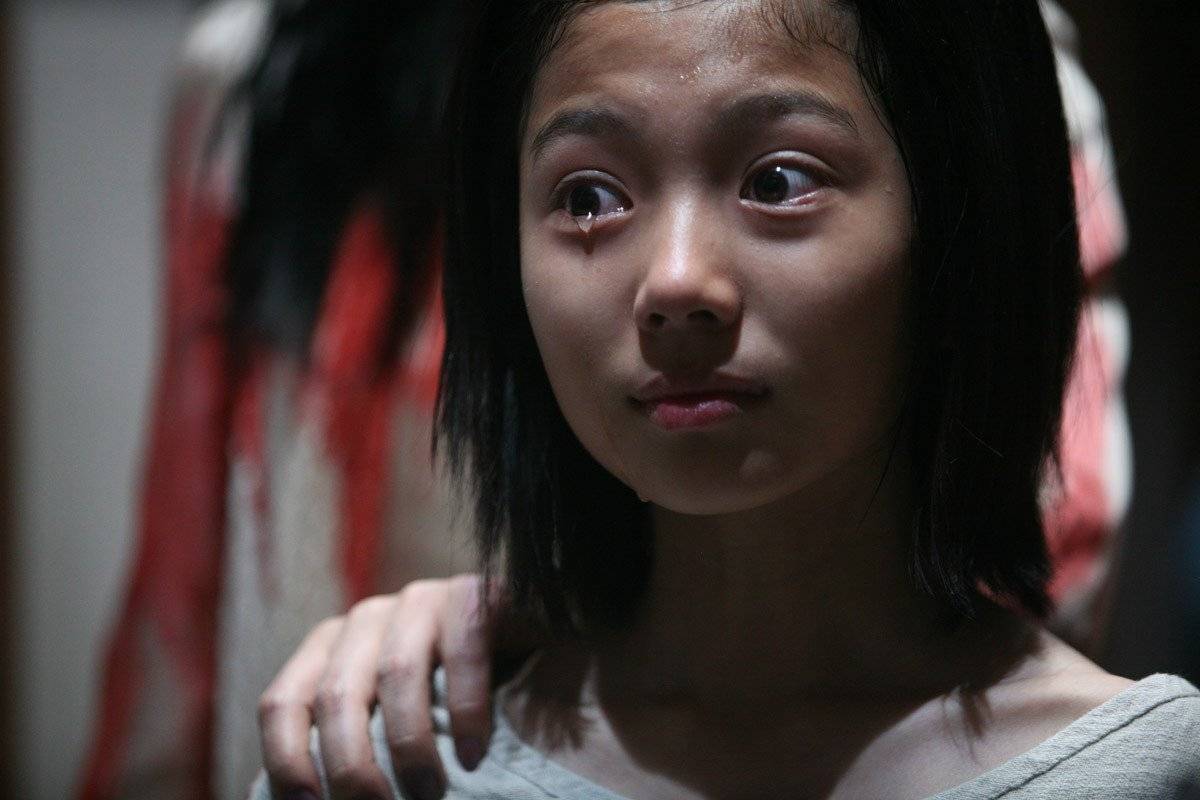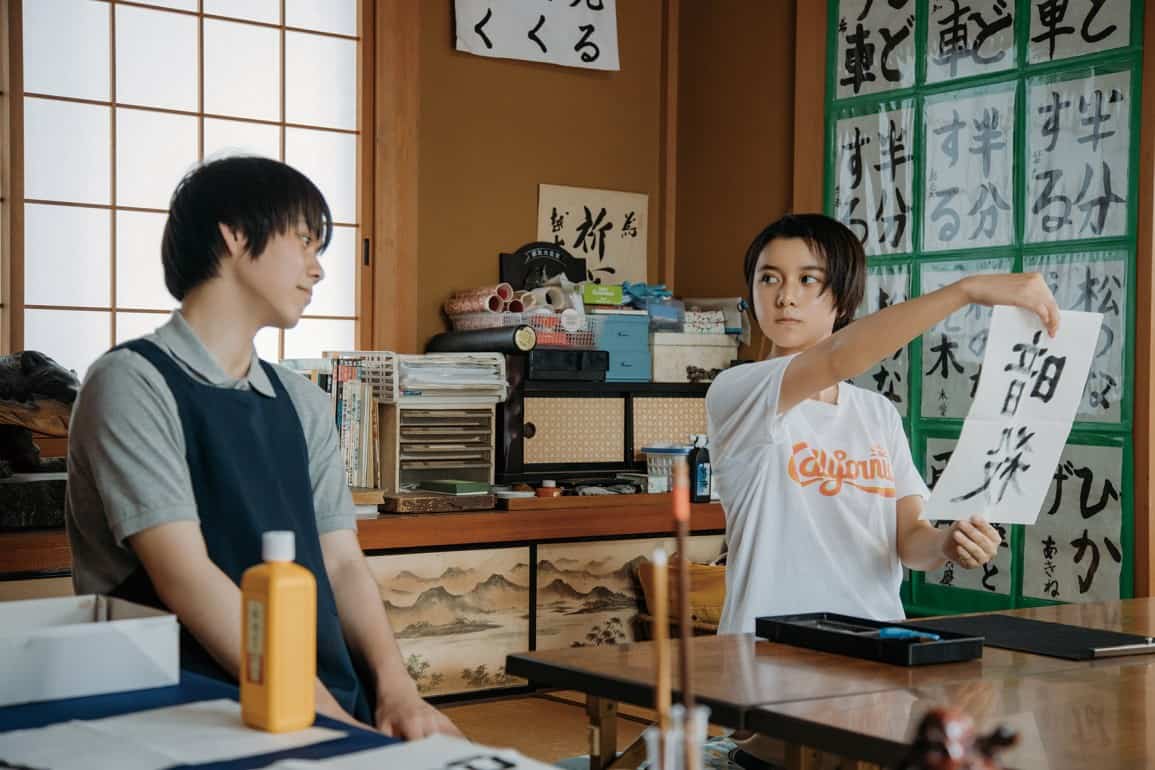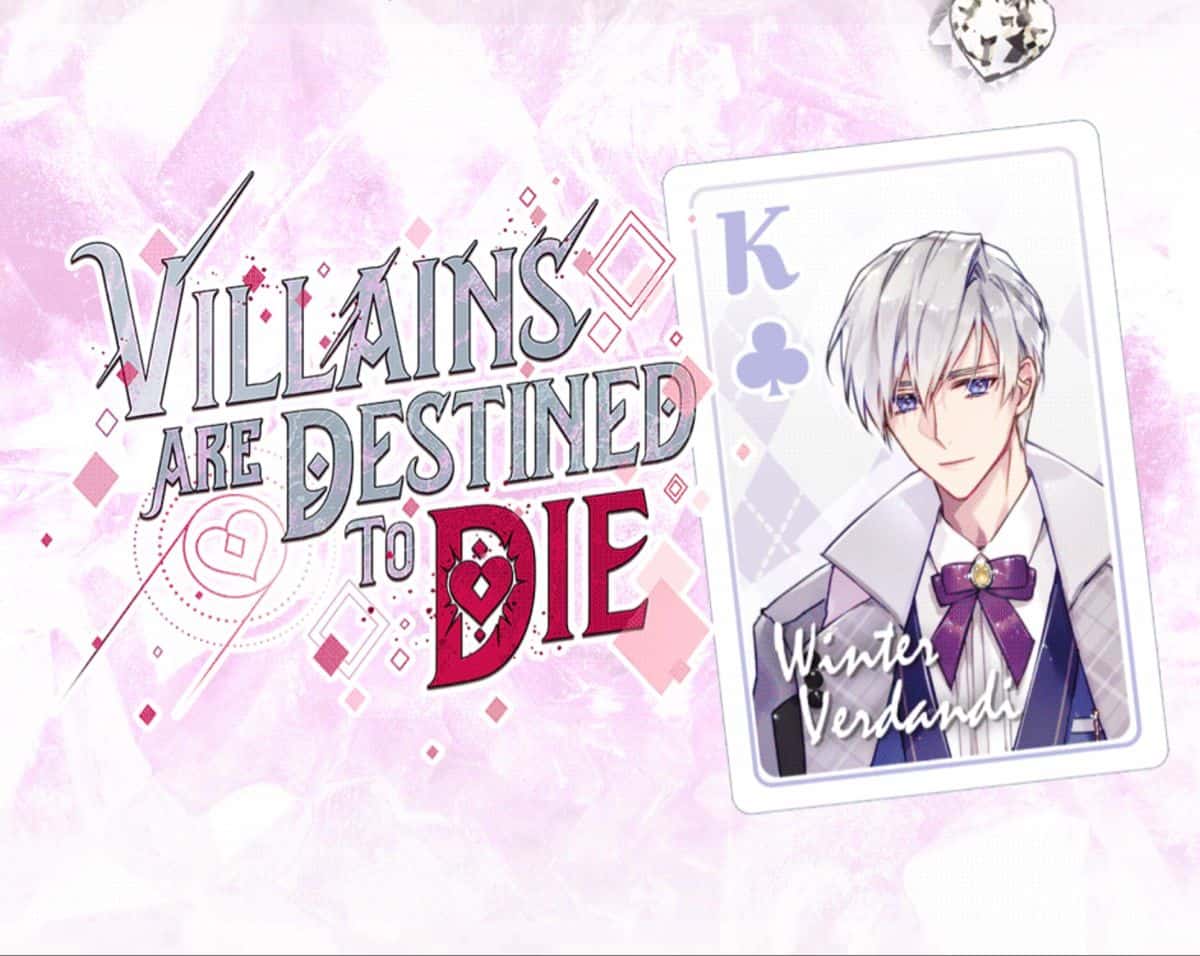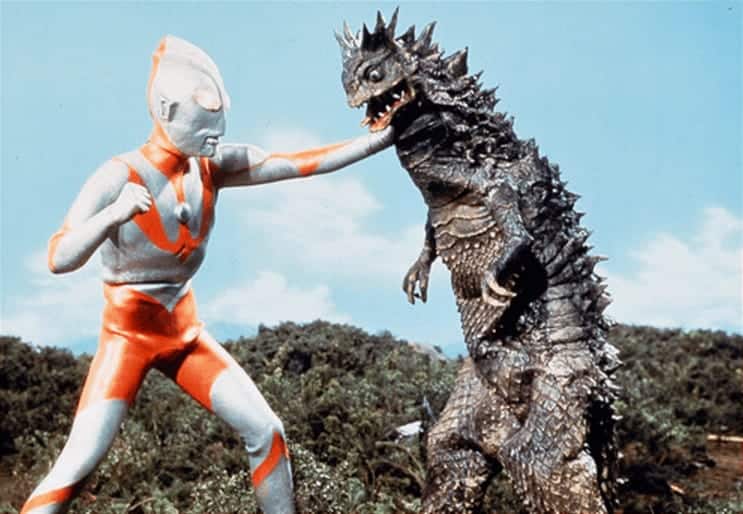The film starts with a recitation of a story that goes like a fairy-tale and by the time we are introduced to our protagonist, we realize in the back of our minds that this film is essentially a fairy-tale in itself. In fact, it is up to the author of the opening fable (Kauff) that plays a significant role in how Xiao-Wei’s love story turns out. Bracketed within the lore of a Forest Prince and Mermaid, this movie has a surprisingly simple plot, that is sensitive and heartrending in it’s portrayal of a 27 year old (with Down’s syndrome) falling in love for the first time.
What is interesting to note is that throughout the film, Tien Niu is dressed in white, symbolizing her as an almost saint-like, holy mother figure that goes so far as to disturb the relationships she has with other people in her life. It’s as if her motherhood subsumes her whole character and her life revolves only around her son. Yet, she has a hard time accepting that her son can make friends who actually care about him. It helps to emphasize on how ingrained our biases are when it comes to treating a person with Down’s syndrome as incapable of making friends or having natural relationships in life outside that of the immediate family.

The film does a neat job of tying loose ends together and giving every character their desired endings by sweetly bringing about character arcs that complete a full circle. While Kauff is suffering from a writer’s block, our protagonist needles his way into his life, innocently posing questions that can be frustratingly akin to nagging but somehow result in motivating him to finish a story, the story of Xiao-Wei himself. His innocent acknowledgement of the picture book that Kauff had illustrated earlier becomes a turning point in this journey. It is as Xiao-Wei frequently says, not to be afraid of bad things because bad things do not always mean bad in general, good things happen after bad things happen.
One cannot help but wonder how realistic is this film. It is not. Far from it and still it touches the edge of reality before veering off to the world of fantasy and dreaming. It signifies the ideal; we wish all the characters to be the way they are presented, but humans are more complex in real life. It is not as easy to be the family of a person with special needs and actions that seem dicey in particular situations cannot be blamed either. What they consider as selfishness in part of the characters (the father and the brother), are just natural human traits and hence we find it difficult to blame them even though what they say or do might otherwise seem despicable. We empathize with them in the same way we empathize with the mother.

Certain scenes capture moments like our thoughts in retrospection, drawn out and slow, especially the one where it starts raining over Xiao-Wei and Blue. The camera looks at the two of them from above, from the sky. There are scenes which depict the naive optimism of Xiao-Wei, the childlike happiness and simultaneously his indignation at witnessing the conflict between his friend and his lover, as he observes them silently, and not being able to protect Blue, he throws a brick on Kauff. The camera moves behind on the track and stills. The various people stop whatever they were doing and stay affixed at their different designated positions. The movie pauses to let the emotional turbulence sink in. Throughout the film, we never forget Xiao-Wei’s condition but we get to know his person beyond his condition. That is what is significantly beautiful about this film, to empathise and understand someone not without biases but in spite of them.


